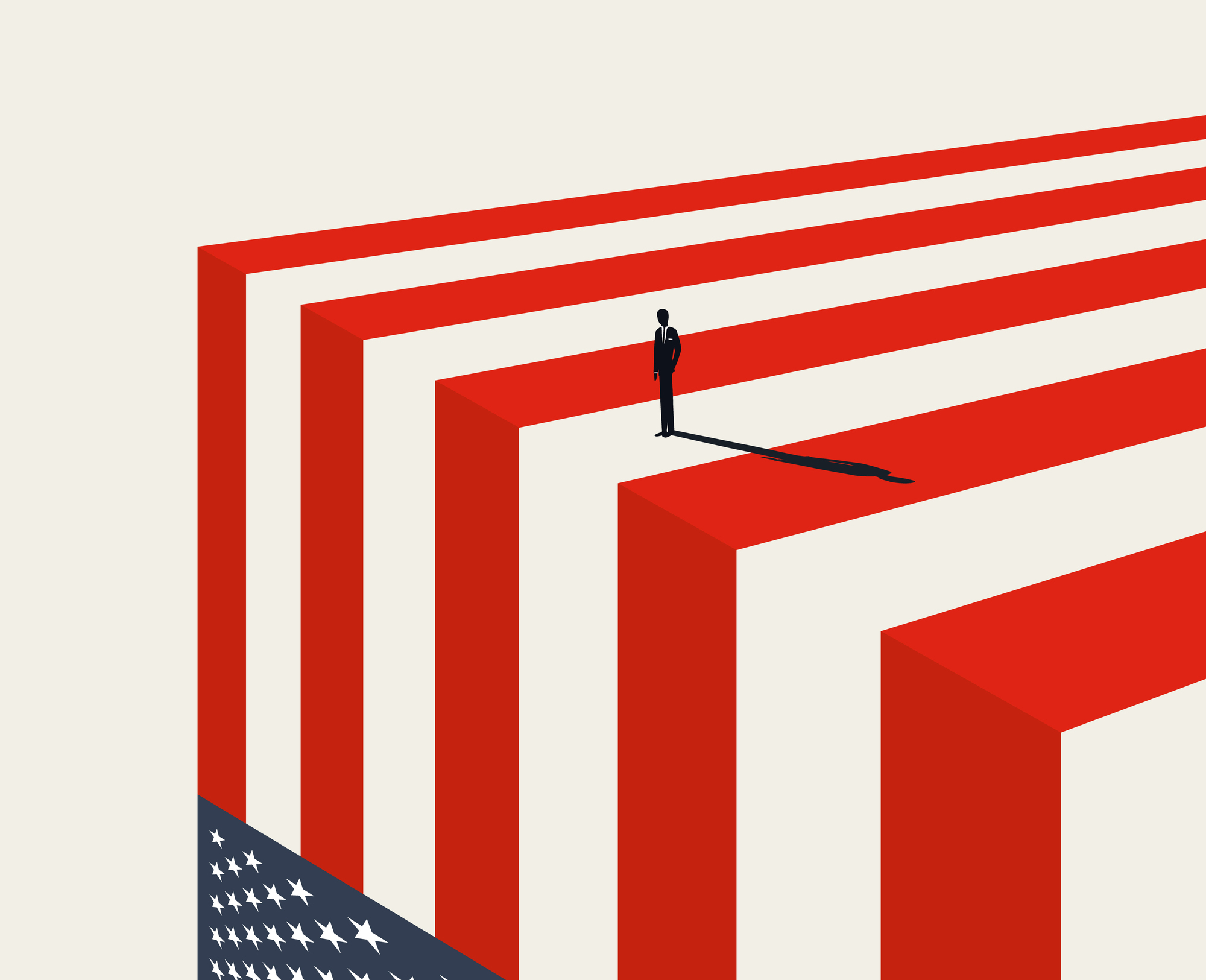The Rise and Fall of the First Amendment
Written By: Glen Allen, Esq.
For several decades I’ve had Edward Gibbon’s classic The Decline and Fall of the Roman Empire on my books-to-be-read list. A month ago I finally took Gibbon’s masterpiece from my bookshelf and began reading it. Almost immediately a host of comparisons of the declining Roman Empire to the present state of America arose in my mind.
Decline and Fall is an erudite and ambitious book. My two-volume Great Books of the Western World version is approximately 1900 pages long, a number that includes almost 500 pages of footnotes, many in Latin, Greek, or French, in all of which Gibbon was fluent. Gibbon describes with often trenchant commentary the history of the Roman Empire from the end of the Pax Romana (a period of approximately 200 years from the accession of Emperor Augustus in 27 BC to the death of Marcus Aurelius, the last of the “Five Good Emperors,” in 180 AD) to the Turks’ bloody capture of Constantinople and the fall of the Eastern Roman Empire, also known as Byzantium, in 1453.
The concept and history of the Pax Romana by itself provokes a swarm of disconcerting thoughts. The word “Pax” in this context denotes a stable peace imposed on a large region by a hegemonic power, a peace that creates conditions for economic growth and the flowering of culture. Certainly the Pax Romana exemplified such traits. Other uses of the “Pax” descriptor are the Pax Britannica (1814-1914) and, sometimes, the Pax Americana (1945 to the present).
If indeed the post WWIII era could fairly be described as a Pax Americana, many growing factors suggest this hegemonic peace is heading toward the “distress and anarchy . . . none could trust their lives or properties to the impotence of law” Gibbon describes for the Roman Empire in his book. These factors include:
- Governmental deficit spending that is advancing toward a death spiral. The federal government’s “debt held by the public,” at $26.3 trillion, is currently equal to about 98 percent of GDP. A recent study by the Wharton School at the University of Pennsylvania, https://budgetmodel.wharton.upenn.edu/issues/2023/10/6/when-does-federal-debt-reach-unsustainable-levels, estimates that such debt cannot exceed about 200 percent of GDP without grave economic consequences. The study contends that the United States has about 20 years for corrective action, after which no amount of future tax increases or spending cuts could avoid government default on its debt. Unlike technical defaults where payments are merely delayed, this default would be much larger and would reverberate across the U.S. and world economies.
- The rise of international alliances that challenge America’s hegemony. In August 2023, the bloc of countries called the BRICS – Brazil, Russia, India, China, and South Africa — held their annual summit in Johannesburg, South Africa. Combined, the BRICS countries have a population of 3.3 billion people and make up more than 25% of global gross domestic product (GDP).
Ever since the Bretton Woods Agreement in 1944, the world has used the U.S. dollar as its reserve currency. Having the reserve currency has allowed the U.S. government to run consistent deficits for decades. In the past few years, however, the U.S. has begun to weaponize the dollar. For example, the U.S. imposed economic sanctions on Iran to bring it to the negotiating table on its uranium enrichment program by not allowing financial institutions to facilitate transfers for Iranian companies and citizens. And the U.S. sanctioned Russia when it invaded Ukraine, freezing an estimated $300 billion dollars of Russian central bank assets.
The members of BRICS, unsurprisingly, are chafing under the dollar regime. During the BRICS summit, Russian President Vladimir Putin in particular took aim at the U.S. dollar system. In an address at the meeting, Putin said, “The process of de-dollarization [when countries move away from the U.S. dollar-based global trade system] is gaining space and is irreversible.” In addition to BRICS, In March 2023 the 10 countries that make up the Association of Southeast Asian Nations (ASEAN) agreed to abandon use of the dollar for trade among themselves.
The U.S. dollar’s status as the world’s reserve currency has given America what French President Valery Giscard d’Estaing called an “exorbitant privilege.” If and when this privilege evaporates, the economic and geopolitical harms to America will be profound.
- Vast, entrenched, and costly military / defense commitments. The United States’ expenditures for military / defense matters is prodigious, relative both to similar expenditures of other nations and to other components of the federal budget. America led the ranking of countries with highest military spending in 2022, with $877 billion dedicated to the military. That constituted nearly 40 percent of the total military spending worldwide that year. America’s total was higher than that of the next 10 nations combined. https://www.statista.com/statistics/262742/countries-with-the-highest-military-spending/. America has approximately 750 military bases in 80 countries, probably more, as the Department of Defense does not disclose all its foreign bases. https://globalaffairs.org/bluemarble/us-sending-more-troops-middle-east-where-world-are-us-military-deployed. Defense spending accounts for 12 percent of all federal spending and nearly half of discretionary spending.
https://www.pgpf.org/chart-archive/0053_defense-comparison.
These massive military expenditures show no signs of abating. To the contrary, American military spending has been increasing in current dollar terms since 2016. Spending increased dramatically in 2022 after the Russian invasion of Ukraine. https://www.statista.com/statistics/272473/us-military-spending-from-2000-to-2012/. Military aid to Israel, already substantial, is certain to increase markedly as a result of the Hamas / Israel conflict. And America’s commitments to support Taiwan against Communist China could add another huge level of military expenditures.
- The declining patriotism, health, and educational achievements of America’s younger generations. At the same time as America’s deficit spending is exploding and its military commitments and expenditures are proliferating, younger generations of Americans are increasingly unpatriotic, unhealthy, and miseducated, maleducated, or uneducated. Military recruitment in 2022 fell well below Department of Defense goals for the Army, Navy, and Air Force. https://www.military.com/daily-news/2023/10/13/big-bonuses-relaxed-policies-new-slogan-none-of-it-saved-military-recruiting-crisis-2023.html. A Pentagon study concluded that 77% of potential Gen Z recruits were ineligible to serve because of physical health (especially obesity), mental health, and / or drug use problems, and of the 23% who were eligible most lacked patriotic sentiments toward their country or favorable views of the military. Id.
Gen Z’s educational achievements also point to future problems. The average Composite score on the ACT test fell to 19.5 for the class of 2023, a decline of 0.3 points from 2022, according to data released in October 2023 by ACT, the nonprofit organization that administers the college readiness exam. https://leadershipblog.act.org/2023/10/act-scores-decline.html?m=1. The average scores in mathematics, reading, and science subjects were all below the ACT College Readiness Benchmarks for those subjects. Id. “This is the sixth consecutive year of declines in average scores, with average scores declining in every academic subject,” ACT CEO Janet Godwin said. Id.
All four factors described above have analogs in the factors that weakened and ultimately destroyed the Roman Empire, as described by Gibbon. If one accepts the premise that America has entered into a decline similar to that of the Roman Empire, what are the implications for Americans’ First Amendment rights? The implications, unfortunately, are ominous.
I make no claim to being a legal specialist in comparative constitutional law, but my research in this area leads me to conclude that America’s First Amendment jurisprudence, at least as expressed in the Supreme Court’s leading cases, is a nearly unparalleled and high-minded achievement for the cause of free expression. No other nation, to my knowledge, can boast that its highest court has articulated a free expression ideal as radical as Justice Oliver Wendell Holmes, Jr.’s statement in United States v. Schwimmer (1929): “if there is any principle of the Constitution that more imperatively calls for attachment than any other, it is the principle of free thought—not free thought for those who agree with us but freedom for the thought that we hate.” But it is true also that popular, political, and judicial support for these admirable ideals has faltered during America’s wars and security crises. As Justice William Brennan, himself an influential proponent of a robust First Amendment, stated in his 1987 essay entitled The Quest to Develop a Jurisprudence of Civil Liberties in Times of Security Crises: “[A]s adamant as my country has been about civil liberties during peacetime, it has a long history of failing to preserve civil liberties where it perceived its national security threatened.”
If perceived national security threats in the past have weakened America’s commitment to First Amendment freedoms, it is no idle hypothesis that damage to Americans’ First Amendment traditions will be even more dramatic and ruinous as America’s decline, which may have already begun, gains momentum. Indeed, the recent hysterical doxxing and speech restrictions imposed on students and professors who voice pro- Palestinian sentiments, in flagrant disregard of basic principles of free expression and academic freedom, is perhaps a harbinger of worst days to come. We need to be prepared.
But I do not wish to end on a negative note. The problems facing Americans are enormous but so too are our resources and potential, if can reawaken our self-reliance and defiant spirit. In any event, our immediate tasks are clear: to think and speak freely and – especially for the Free Expression Foundation — to help others do the same.
First published on American Renaissance website. Reprinted with permission







